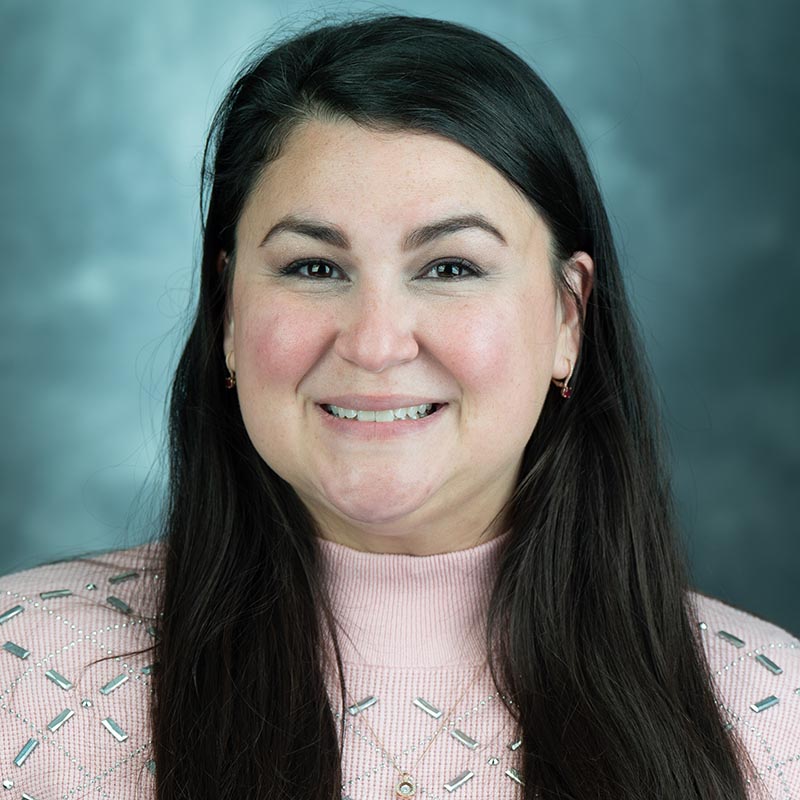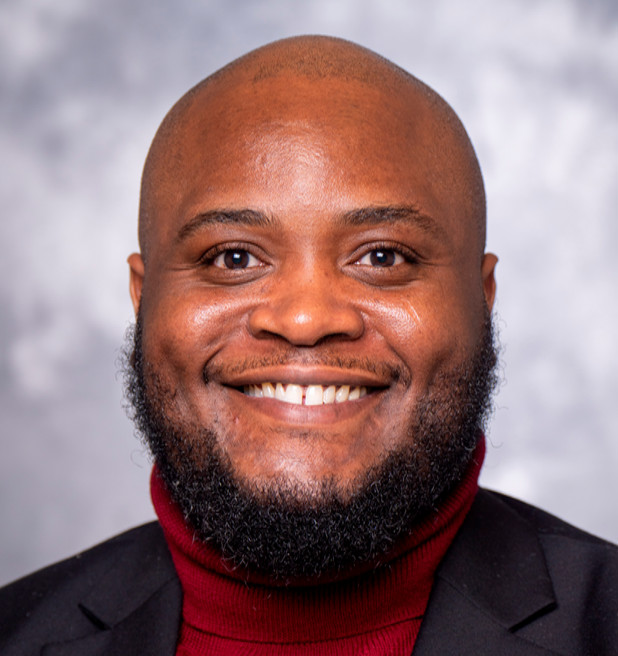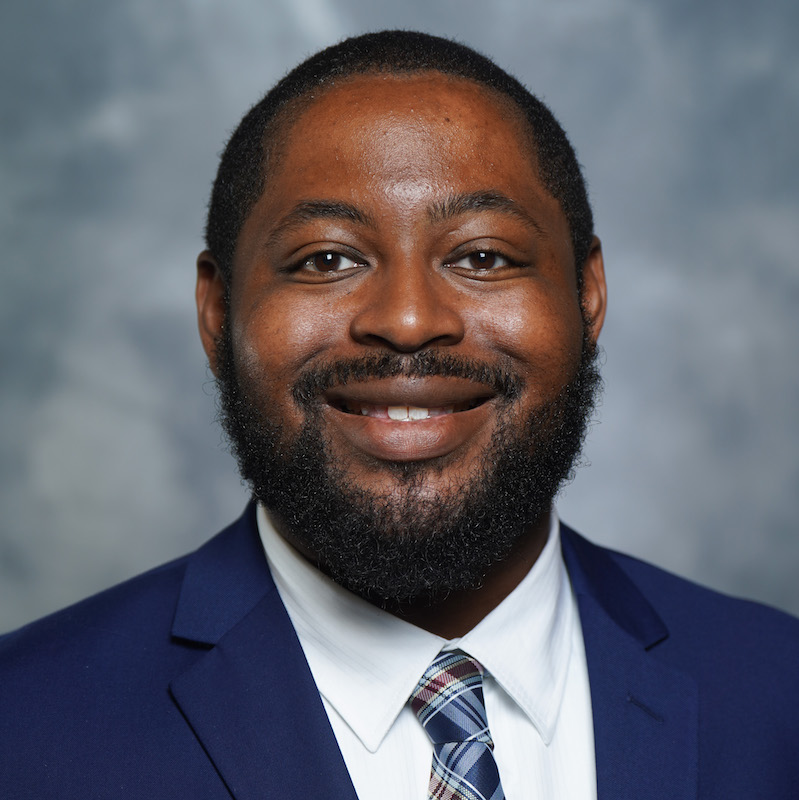Curriculum Management Unit
The Curriculum Management Unit is a vital part of the Office of Academic Affairs, responsible for the organization, documentation, and continuous monitoring of the medical school curriculum. This unit works with faculty to ensure that the curriculum is integrated, compliant with accreditation standards and mapped to the Medical Education Program Objectives (MEPOS).
Curriculum Components
Active Learning
Student comprehension and ownership of the learning improves with active learning modalities such as Case-Based Learning (CBL), Problem-Based Learning (PBL), and flipped classrooms. The curriculum also engages students in simulation-based learning, team-based exercises, and interactive small group discussions that strengthen clinical reasoning and collaboration from the very beginning of their medical school journey.
Impact Weeks
Impact weeks offer students an opportunity to focus on interprofessional education. Interprofessional Education (IPE) with Belmont’s other health professional schools offers a rich opportunity for professional development and deep learning of how to work within collaborative healthcare teams. In addition, Impact weeks are intentionally placed in the curriculum to encourage students to decompress and focus on personal wellness with a reduced schedule.
Foundation Phase
The first phase of the curriculum ensures students have a comprehensive understanding of foundational clinical science to understand how to care for patients and encompasses three parallel course types.
Download a PDF version of the foundation phase curriculum schematic or a version of the full curriculum schematic .
| Curriculum | Month(s) | Week(s) |
|---|---|---|
| FOUNDATION PHASE (Year 1 Fall & Spring) | ||
| Orientation Week | 1 week | |
| Molecular & Cellular Foundations | 6 weeks | |
| Integrated Clinical Practice (ICP) 1A | 19 weeks | |
| Wonder and Wisdom in the World of Medicine (WWWM) 1A | 19 weeks | |
| Impact Week 1 | 1 week | |
| Immunology, Microbiology, & Dermatology | 6 weeks | |
| Impact Week 2 | 1 week | |
| Hematology & Basic Principles of Oncology | 5 weeks | |
| Fall/Thanksgiving Break | No Class | |
| Winter Break | No Class | |
| Cardiovascular | 8 weeks | |
| Integrated Clinical Practice (ICP) 1B | 20 weeks | |
| Wonder and Wisdom in the World of Medicine (WWWM) 1B | 20 weeks | |
| Spring Break | No Class | |
| Impact Week 3 | 1 week | |
| Pulmonary | 6 weeks | |
| Musculoskeletal | 5 weeks | |
| Break | No Class | |
| FOUNDATION PHASE (Year 2 Fall & Spring) | ||
| Gastrointestinal | 5 weeks | |
| Integrated Clinical Practice (ICP) 2A | 19 weeks | |
| Wonder and Wisdom in the World of Medicine (WWWM) 2A | 19 weeks | |
| Impact Week 4 | 1 week | |
| Renal | 5 weeks | |
| Neurology & Behavioral Science | 8 weeks | |
| Fall/Thanksgiving Break | No Class | |
| Winter Break | No Class | |
| Endocrinology & Reproduction | 9 weeks | |
| Integrated Clinical Practice (ICP) 2B | 11 weeks | |
| Wonder and Wisdom in the World of Medicine (WWWM) 2B | 11-weeks | |
| Foundation Capstone | 2 weeks | |
| USMLE Step 1 Independent Study | 6 weeks | |
Required courses include:
Beginning with Molecular and Cellular Foundations, students build on their pre-medical coursework, working through foundation sciences before moving into organ system courses. Learning includes small-group case-based experiences such as case-based learning (CBL), problem-based learning (PBL), donor-body anatomy labs, and experiential pathology labs with microscopy and gross specimens. Concluding this phase is a Foundation phase capstone course, which leads into dedicated study time for USMLE Step 1.
ICP trains students in clinical skills, professionalism, and interprofessional collaboration, including clinical preceptorships, Objective Structured Clinical Examinations (OSCEs), and service learning.
W3M helps students develop understanding of professional formation, biostatistics, medical ethics, health equity, and healthcare systems.
Clerkship Phase
The Clerkship Phase is 12 months in duration and consists of seven core clerkships. Throughout their clerkship, students will have opportunities to complete rotations in subspecialties for career exploration.
A longitudinal Family Medicine clerkship runs throughout the year. Impact weeks between dyads allow students to reflect on their clinical experiences in the context of health systems, whole person care, and advanced clinical reasoning.
Clerkship sites are throughout Nashville, typically within the HCA TriStar System, allowing students to maintain their housing.
Clerkship Phase (12 months)
Clerkships include three blocks of paired clerkships:
- Surgery (8 weeks) + Neurology (4 weeks)
- Internal Medicine (8 weeks) + Psychiatry (4 weeks)
- Pediatrics (6 weeks) + Obstetrics/Gynecology (6 weeks)
Download a PDF version of the clerkship phase curriculum schematic or a version of the full curriculum schematic.
| Curriculum | Month(s) | Week(s) |
|---|---|---|
| CLERKSHIP PHASE (Year 2 Summer) | ||
| Block 1 (12 weeks) | ||
| Surgery & Neurology | 12 weeks | |
| Pediatrics & OB/GYN | 12 weeks | |
| Internal Medicine & Psychiatry | 12 weeks | |
| Family Medicine Longitudinal Clerkship 1A | 12 weeks | |
| CLERKSHIP PHASE (Year 3 Fall & Spring) |
||
| Impact Week 5 | 1 week | |
| Block 2 (12weeks) | ||
| Surgery & Neurology | 12 weeks | |
| Pediatrics & OB/GYN | 12 weeks | |
| Internal Medicine & Psychology | 12 weeks | |
| Family Medicine Longitudinal Clerkship 1B | 12 weeks | |
| Impact Week 6 (Virtual) | 1 week | |
| Block 3 (12 weeks) | ||
| Surgery & Neurology | 12 weeks | |
| Pediatrics & OB/GYN | 12 weeks | |
| Internal Medicine & Psychology | 12 weeks | |
| Family Medicine Longitudinal Clerkship 1C | 12 weeks | |
| Impact Week 7 | 1 week | |
Students gain hands-on experience diagnosing and managing a wide range of adult illnesses. This rotation emphasizes clinical reasoning, evidence-based care, and patient-centered communication in both inpatient and outpatient settings across HCA Healthcare’s TriStar Division.
Explore the evaluation and treatment of psychiatric disorders in a variety of care environments. Students develop skills in psychiatric interviewing, mental status exams, and treatment planning, while learning to navigate ethical considerations and collaborate with multidisciplinary teams.
Students participate in the full continuum of surgical care—from preoperative assessment to postoperative management. Students assist in procedures, interpret diagnostics, and refine decision-making and technical skills through exposure to general and specialty surgeries.
Students train in the diagnosis and management of neurologic conditions across inpatient and outpatient settings. Students practice neurologic exams, lesion localization, and diagnostic interpretation, building strong clinical reasoning and communication skills.
Students care for infants, children, and adolescents with a variety of health needs. Students develop pediatric-specific clinical skills and learn to communicate effectively with families while focusing on preventive care and developmental assessment.
Students experience comprehensive women’s health care, including prenatal visits, labor and delivery, and gynecologic procedures. Students refine clinical and procedural skills while managing common conditions and providing patient-centered reproductive care.
In this longitudinal outpatient rotation spans three semesters, offering continuity with patients and preceptors in community clinics across Nashville. Students focus on preventive care, chronic disease management, and team-based primary care, gaining a deep understanding of the role of family physicians.
Individualization Phase
In the Individualization Phase, students personalize their education through electives, sub-internships, research, and advanced clinical experiences aligned with their career goals. They can choose to engage in mentored scholarly work, and participate in specialty-specific training, all of which promote autonomy, critical thinking, and readiness for residency.
The focus of the Individualization Phase is residency preparation. This culminates in a month-long Transition to Residency course held in March, which brings the cohort back together for Match Week support and celebrations.
During the summer following the third year and throughout the entirety of the fourth year, students will build a schedule to support their career goals. Throughout the fourth year, students will also prepare and sit for the USMLE Step 2 exam. Students will work closely with career advisors who will help to explore and design the sequence of these advanced experiences, so they are prepared as they transition into residency.
Download a PDF version of the individualization phase curriculum schematic or a version of the full curriculum schematic .
| Curriculum | Month(s) | Week(s) |
|---|---|---|
| INDIVIDUALIZATION PHASE (Year 1 Summer) | ||
| Summer Elective 1 | 4 weeks | |
| Summer Elective 2 | 4 weeks | |
| INDIVIDUALIZATION PHASE (Year 3 Winter) | ||
| Break OR Optional Elective | 2 or 4 weeks | |
| Winter Break | ||
| INDIVIDUALIZATION PHASE (Year 3 Summer) | ||
| Individualization Phase must include 4 weeks each of Emergency Medicine, Critical Care, Sub Internship, Step 2 Prep as well as Electives and Break Time | 4 weeks | |
| INDIVIDUALIZATION PHASE (Year 4 Fall & Spring) | ||
| Individualization Phase must include 4 weeks each of Emergency Medicine, Critical Care, Sub Internship, as well as Electives and Break Time | 4 weeks | |
| 4 weeks | ||
| Transition to Residency | ||
| Individualization Phase must include 4 weeks each of Emergency Medicine, Critical Care, Sub Internship, as well as Electives and Break Time | 4 weeks | |
Students have three opportunities to complete electives in the Individualization Phase. The first opportunity is between the summer of their first and second year. Electives can include one-month electives in June and July, or a full summer elective for research.
The second opportunity for students to complete electives in the Individualization Phase is during winter break between the fall and spring of the third year.
Fourth Year Clinical Experiences
In their final year, medical students build on foundational knowledge and clinical skills through a series of advanced, hands-on clinical rotations designed to deepen clinical competence and transition to residency.
Sub-Internship (Sub-I)
The Sub-Internship places students in a role that closely mirrors that of a first-year resident. Under close supervision, students assume primary responsibility for patient care tasks, including note writing, order placement, and coordination of care. This immersive experience enhances clinical decision-making, professionalism, and readiness for postgraduate training.
Emergency Medicine
This rotation provides exposure to a broad spectrum of acute conditions that present to the emergency department. Students develop skills in triage, rapid assessment, and procedural interventions, while also learning to manage uncertainty and prioritize care in a fast-paced environment. The rotation emphasizes teamwork and interprofessional communication.
Critical Care
Students in the Critical Care rotation participate in the management of critically ill patients in the ICU. They gain experience with ventilator management, hemodynamic monitoring, and multidisciplinary care. Emphasis is placed on recognizing clinical deterioration, managing complex conditions, and practicing evidence-based medicine in high-acuity settings.
Together, these courses provide essential preparation for the clinical responsibilities and demands of internship.
Want to Know more?
Staff

Thailese Hamby
Email: thailese.hamby@belmont.edu
Office Location: FCOM 6612

Toccara Houston
Email: toccara.houston@belmont.edu
Office Location: FCOM 6602

Lannie Smith, Jr.
Email: lannie.smith@belmont.edu
Office Location: FCOM 6622

Jamie Wiesmueller
Email: jamie.wiesmueller@belmont.edu
Office Location: FCOM 6608

Vincent Wilson
Email: vincent.wilson@belmont.edu
Office Location: FCOM 6604
Contact Us
Thomas F. Frist, Jr. College of Medicine
1900 Belmont Boulevard
Nashville, TN 37212
Phone: 615.460.6191

